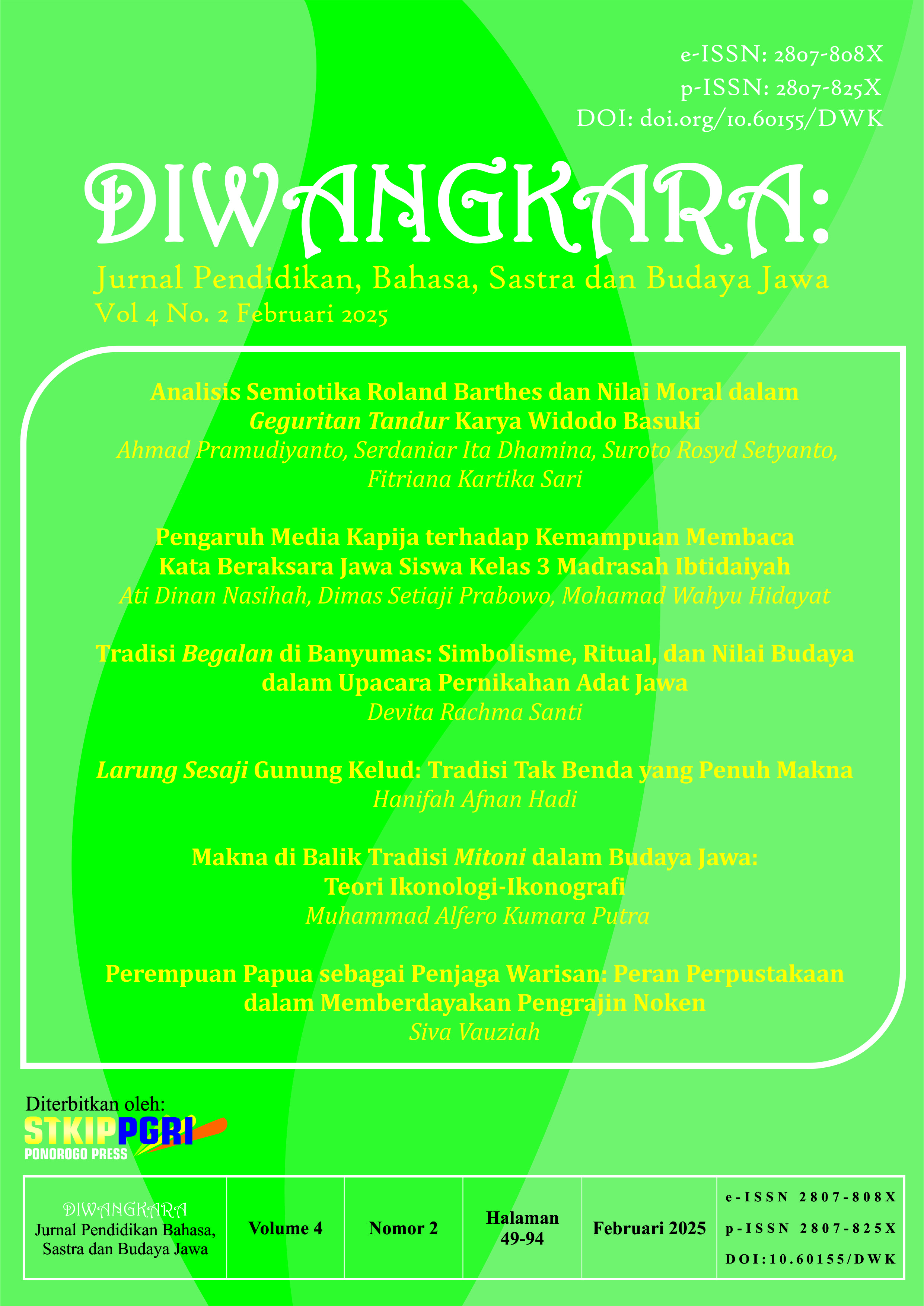Analisis Semiotika Roland Barthes dan Nilai Moral dalam Geguritan Tandur Karya Widodo Basuki
DOI:
https://doi.org/10.60155/dwk.v4i2.511Keywords:
Semiotic, Roland Barthes, Moral Value, Geguritan TandurAbstract
This research examines the moral values contained in the geguritan entitled Tandur by Widodo Basuki in 2022. Geguritan is a literarature that uses many figurative words and diction with connotative meanings, so semiotic analysis is needed to find out the meaning in it. The analysis of moral values in this Tandur geguritan uses semiotic theory according to Roland Barthes. Barthes divides meaning in semiotics into three, namely denotative, connotative and mythical meanings. The data in this study are the meaning and moral values in the Tandur geguritan. Data source is the Tandur geguritan published in the geguritan anthology entitled Guritan Wah Kumpulan Guritan Gagrak Anyar which was published in May 2022. The data collection technique uses the reading and note technique, while the analysis uses content analysis. The results of the analysis using semiotic theory are the denotative, connotative and mythical meanings found in the Tandur geguritan by Widodo Basuki. Then the second result is that there are four moral values referring to the results of the meaning analysis using semiotic theory.











